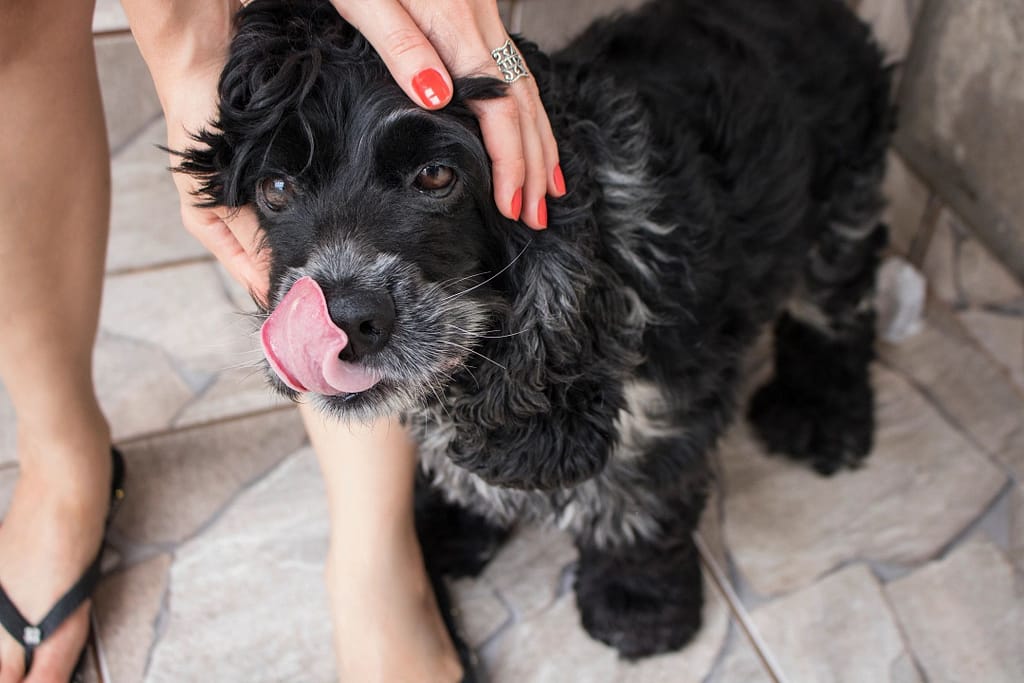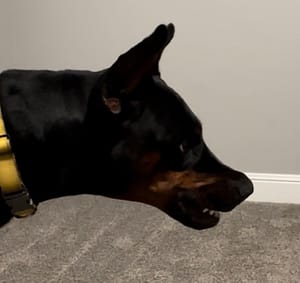Finding the Right Dog Sitter for Your Anxious Pup: Essential Tips

I know the feeling: you think that your dog is more anxious than other dogs, requires special accommodations, might misbehave due to anxiety, can’t be crated, can’t be outside unsupervised, can’t be with other dogs unless XYZ, and on and on…you’re no the only one who thinks that but the truth is your dog is just a dog. They will be fine without you. For your peace of mind though if you are looking for a sitter for your anxious dog, finding the right dog sitter is paramount to provide comfort and stability in your absence. In this article, we’ll explore important considerations and tips for selecting a dog sitter who can provide the care and support your anxious dog needs.
Understanding Your Anxious Dog’s Needs: Before embarking on your search for a dog sitter, it’s crucial to understand your anxious dog’s specific needs and triggers. Take note of situations or environments that cause stress or anxiety for your dog, whether it’s separation anxiety, fear of new people or places, noise sensitivity, or other behavioral issues. By identifying these triggers, you can communicate effectively with potential dog sitters and ensure they have the knowledge and experience to handle your dog’s unique challenges. Bear in mine that your dog is not as unique as you think and the main things you need to communicate to a sitter are situations where they may bite or situations where they will try to escape and what their digging/jumping skills are so you can avoid those scenarios.
Tips for Finding a Dog Sitter for Anxious Dogs:
Experience with Anxious Dogs: Look for dog sitters who have experience working with anxious or fearful dogs which is going to be basically any sitter that has done high volume dog sitting. I would avoid sitters with small children or a lot of pets. Mostly you just need to gauge their comfort level to make sure they can handle dealing with the stress of your dog potentially barking a lot, having accidents, or needing to be kept separate from other dogs.
Positive Reinforcement Techniques: I would never use a sitter who actively talks about positive reinforcement. Use positive or negative or no correction as long as the dog and everyone is safe. Whatever is most effective for the situation and this can vary widely based on the sitter’s preferences which you should not try to make them customize for your dog because, again, your dog of the millions or billions of dogs in the world is not different.
Meet-and-Greet Sessions: Schedule meet-and-greet sessions with potential dog sitters to assess their compatibility with your anxious dog. I’m a big fan of the no touch, no talk, no eye contact that Caesar Milan has talked about so don’t be offended if a sitter doesn’t acknowledge your dog at all for a few minutes. Your dog likely prefers that.
Consistency and Routine: Select a dog sitter who can maintain a consistent routine for your anxious dog, including feeding schedules, exercise routines, and bedtime rituals. Consistency and predictability can help alleviate anxiety and provide a sense of security for your dog.
Comfortable Environment: Ensure that the dog sitter’s home or the environment where your dog will be staying is calm, quiet, and free from potential stressors. Discuss any specific accommodations or adjustments that may be necessary to create a comfortable and safe space for your anxious dog.
Open Communication: Choose a dog sitter who prioritizes open communication and transparency. Do not, however, send a lot of update requests to the sitter. Their natural cadence of communication either lines up with your expectations or doesn’t but do not inundate them with requests for updates. I’ve had numerous clients send me messages every few hours and I eventually fire those clients. Once a day updates is plenty. More than that is mental illness.
Emergency Preparedness: Inquire about the dog sitter’s protocols for handling emergencies or unexpected situations, such as panic attacks or medical emergencies. Ensure they have access to your contact information, as well as your veterinarian’s information, and discuss a plan of action in case of emergencies.
References and Reviews: Take the time to research potential dog sitters thoroughly. Read reviews from previous clients, ask for references, and seek recommendations from trusted sources such as friends, family, or local pet communities. If you use a a website like Rover.com you can find sitters with many verified stays which does provide some comfort that they have the skills and experience to handle your dog.
Finding the right dog sitter for an anxious dog requires careful consideration and diligence but what it ultimately comes down to is this: can this sitter manage my dog without getting too frustrated or there being a high probability that my dog will bite someone or another dog with them supervising. If you can say you have confidence that a bite will not occur and they will not be overly frustrated by your dog’s anxiety, that is enough. Do not try to make your sitter customize their home and schedule to replicate your dog’s exact schedule and tendencies.





